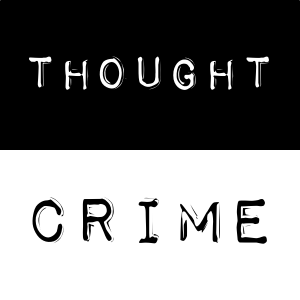Donald Trump Campaign Speech. 15 Logical Fallacies in 3 Minutes
A shared whiteboard where the class records examples of a range of logical fallacies
3.5 Propaganda Speech
Present a speech to the class using devices and techniques of propaganda to advance a strong view.
Linguistic Techniques of Propaganda
“Political language is designed to make lies sound truthful and murder respectable, and to give an appearance of solidity to pure wind.” George Orwell
Nuclear Weapons are Morally Indefensible – David Lange at the Oxford Union
Weekly Plan – Term Two, Week Five
This is week one of your Feature Article writing assessment. You will work independently on these articles during your English periods this week.
Weekly Plan – Term Two, Week Four
This week we develop your individual plans for your Feature Article. We define Dystopia and look at resonance between Nineteen Eighty-Four and our world today.
Nineteen Eighty Four – Preparing for “Feature Article” Assessment
Guidance supporting preparation of a critical review of George Orwell’s Nineteen Eighty-Four that is supported by assessment by New Zealand’s NCEA framework. NCEA English 3.4 AS91475
Literary Theories: Feminism
An introduction to feminist criticism including a starting sample of ‘what feminist literary critics do’
Weekly Plan – Term Two, Week Three
This week we continue our analysis of Nineteen Eighty-Four. We will discover Feminist Literary Theory and I’ll introduce you to the outline for your Feature Article.
Nineteen Eighty-Four: Research Project – Exploring Beyond the Text
This week we are going to engage in a short research project in order to shore up some of our knowledge around the periods that Nineteen Eighty-Four covers. This is all in pursuit of the key inquiry: how does Nineteen Eighty-Four help us to define the genre “Dystpian Literary Fiction”?
Thoughtcrime Podcast
Listen to this course's companion podcast to help make sense of everything you find published here
Course Content
Choosing Thoughtcrime as your English programme for Level 3 means that, you probably find the darker, more dystopian aspects of world literature attractive; you’re somehow inexorably drawn to the unusual and deep down you sense that something is rotten in the state of… This programme will take a media-savvy journalistic approach. You’ll need to think fast, question everything and be willing to speak up. You will be asked to challenge yourself, take risks and show ambition.
We’ll be reading the work of some of the 20th Century’s greatest satirists, poets and activists. We’ll explore modern text communication, political and online language and compare this with our own speech to learn how the wool can be so easily pulled over our eyes. We’ll look at the grammar and style of a range of journalistic writing and publish our own. We’ll explore how our very language itself can control our thoughts and – if we’re not careful – limit our freedom. We’ll read one of the 20th Centuries most disturbing political novels, George Orwell’s Nineteen Eighty Four and explore modern anti-heroes such as Donnie Darko and A Clockwork Orange’s Alex De Large. Throughout, you will be practising the key skills required to succeed in your NCEA programme.
In parallel to this everyone will be completing for homework their own longitudinal genre inquiry by investigating links between self-selected books, films and art and presenting these in documentary form.
Political language. . . is designed to make lies sound truthful and murder respectable, and to give an appearance of solidity to pure wind.
GEORGE ORWELL










